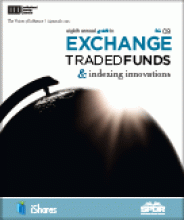Abstract
Leveraged ETFs can perform poorly over longer time horizons, even when the underlying index performs well. This longer-term underperformance results from ill-timed rebalancing and the geometric nature of returns compounding. The author uses the concept of a growth-optimized portfolio to show that highly levered ETFs (3x and inverse ETFs) are likely to converge to zero over longer time horizons. When based on high-volatility indexes, 2x leveraged ETFs can also be expected to decay to zero; however, under moderate market conditions, these ETFs should avoid the fate of their more highly leveraged counterparts. The author uses these ideas to suggest that an adaptive leverage ETF might produce more attractive results over longer time horizons.
- © 2009 Pageant Media Ltd
Don’t have access? Register today to begin unrestricted access to our database of research.








